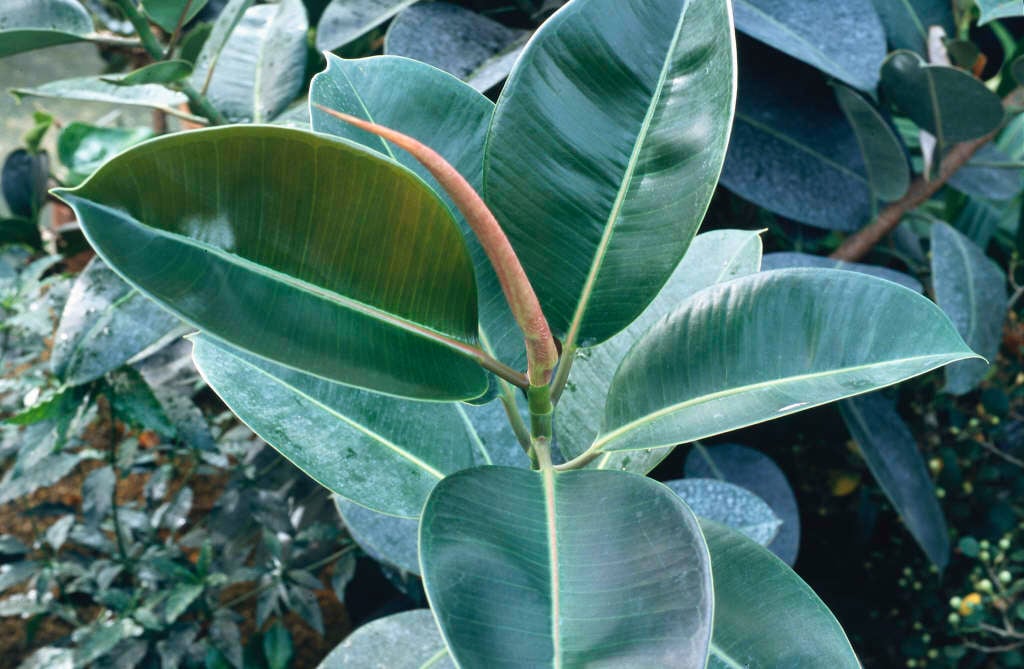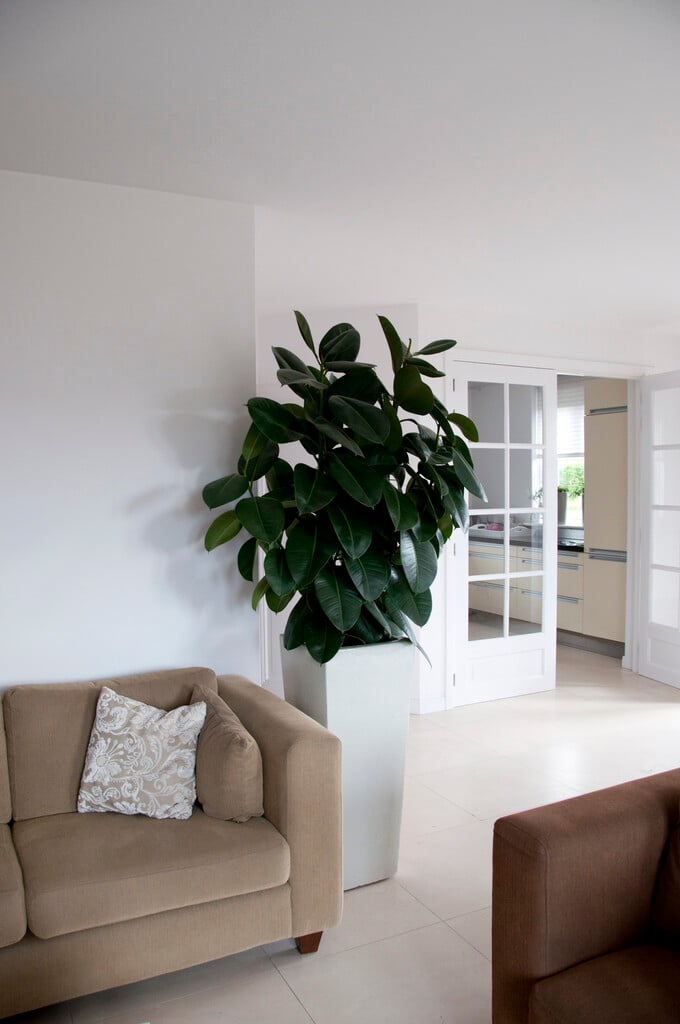Ficus elastica
rubber plant
Large, tropical evergreen tree, often grown as a houseplant. Large, broadly oval-shaped, glossy dark green leaves, occasionally red-flushed, with bronze-coloured undersides are 30-45cm long. Yellow figs are produced in clusters on mature trees in hot climates
Other common names
Assam rubbercaoutchouc
see moreIndia rubber fig
India rubber plant
India rubber tree
snake tree
Size
Ultimate height
2.5–4 metresTime to ultimate height
10–20 yearsUltimate spread
1–1.5 metresGrowing conditions
Moisture
Moist but well–drainedpH
Acid, Alkaline, NeutralColour & scent
| Stem | Flower | Foliage | Fruit | |
| Spring | Green | |||
|---|---|---|---|---|
| Summer | Green | |||
| Autumn | Green | |||
| Winter | Green |
Position
- Full sun
- Partial shade
Aspect
South–facing or West–facing or East–facing
Exposure
Sheltered Hardiness
H1BBotanical details
- Family
- Moraceae
- Native to GB / Ireland
- No
- Foliage
- Evergreen
- Habit
- Bushy
- Genus
Ficus can be evergreen or deciduous trees, shrubs or climbers, with often leathery, simple, entire or lobed leaves and tiny flowers borne within a hollow receptacle which enlarges to form the fruit
- Name status
Correct
- Plant range
- E Himalaya to N Malaysia
How to grow
Cultivation
Grow in houseplant compost in bright but filtered or indirect light. During growth water moderately and apply a high nitrogen fertiliser every month; water sparingly in winter. Topdress annually and repot every 2-3 years. See ornamental fig cultivation for more advice
Propagation
Propagate by semi-hardwood cuttings or by air layering
Suggested planting locations and garden types
- Houseplants
- Sub-tropical
- Low Maintenance
- Conservatory and greenhouse
Pruning
Pests
May be susceptible to glasshouse red spider mite, thrips, mealybugs and scale insects under glass
Diseases
May be susceptible to honey fungus
Love gardening
Sign up to receive regular gardening tips, inspiration, offers and more
View our Privacy Policy
Get involved
The Royal Horticultural Society is the UK’s leading gardening charity. We aim to enrich everyone’s life through plants, and make the UK a greener and more beautiful place.

